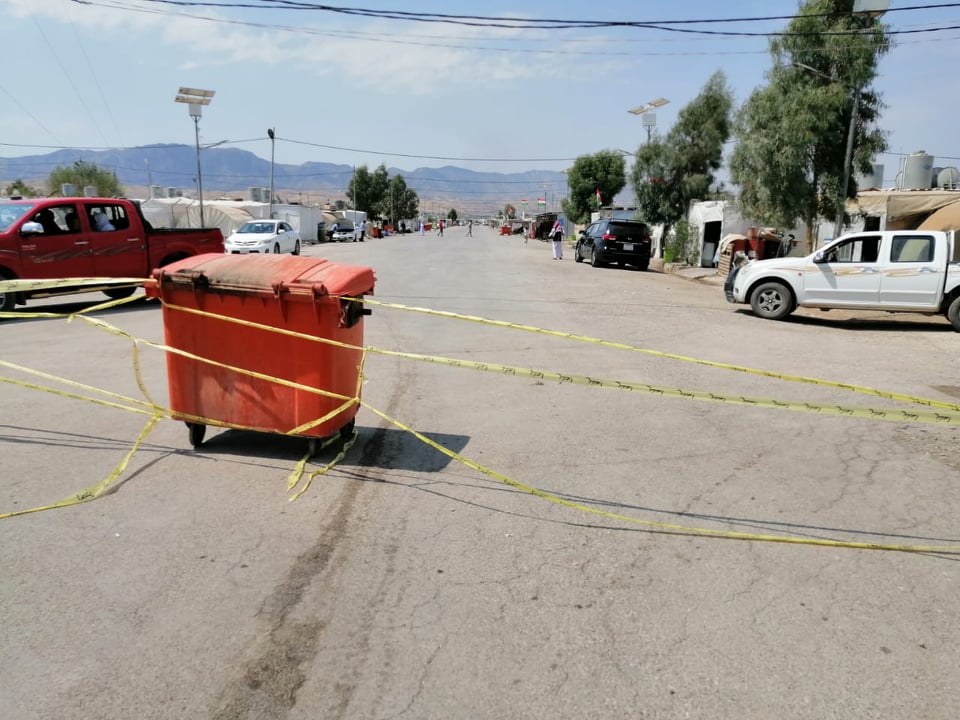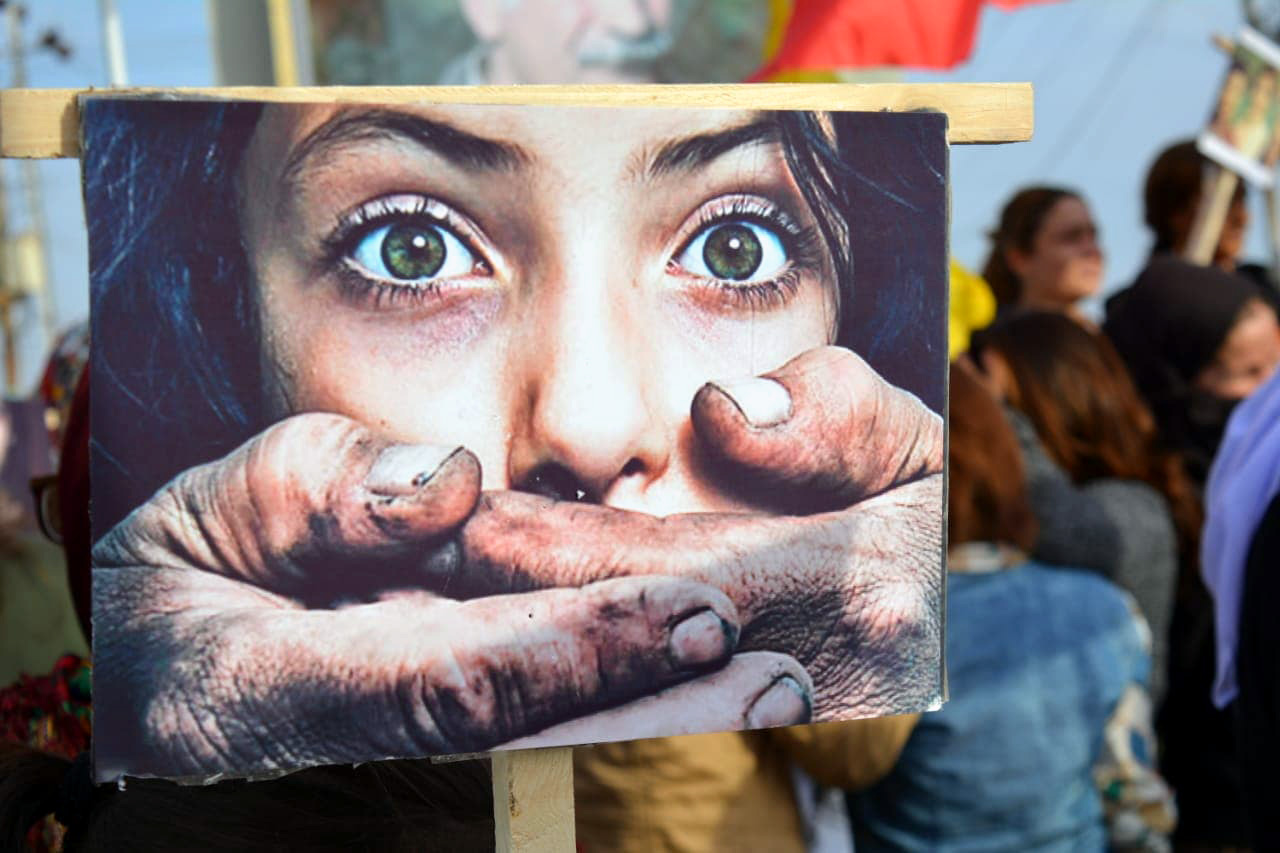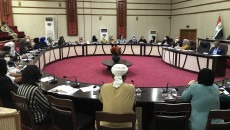On top of the hardships of displaced life in a camp, most of Sarah’s days have been filled with quarrels and violence as her husband was forced to stay at home.
Sarah’s husband was compelled to stay home as a curfew was imposed due to the Corona pandemic, but it was her who paid the heaviest price.
“The lockdown and curfew period was difficult and distressing for me, because my husband’s treatment with me was very bad at that time," Sarah said.
Sara, which is an assumed name for a displaced woman in a camp in Dohuk province, told KirkukNow: "My husband was verbally abusing me because he was under great pressure, as he was forced to stay at home without work or money."
Whenever Sara would ask her husband for what they needed at home, it would end up in a quarrel, because lack of money and inability to provide would make her husband lose his temper.
“Whenever my husband is forced to stay at home and not go out to work, that day ends in conflict.”
Sara has not yet filed any legal complaints against her husband for the violence she suffered during the previous months.
"I cannot endure the pressure and the problems forever. If things get worse, I will reach out to some place and file my complaint."

According to NGOs and activists, domestic violence has increased during the lockdown period, but there is no thoroughly-conducted research to prove that.
Sozan Khudéda Khalaf, a lawyer and a women and children’s rights activist, told KirkukNow: “According to my inquiries, the rate of [domestic] violence among the displaced people from February until now has increased. I could say it has doubled.”
violence among the displaced people from February until now has increased. I could say it has doubled
Lockdown and curfews as preventive measures against the pandemic were imposed in March by the Iraqi and the Kurdistan Regional governments and lasted for several months.
"Most of the IDPs work as labourers. And if that is not possible, staying home in a small tent would get them into quarrels with their wives over the smallest things. And that exacerbates things to the point of the use of violence,” said Khalaf.
Most of the displaced people have been living in the camps for more than six years. Statistics by the Kurdistan Regional Government show that more than 700,000 displaced have not yet returned to their home regions.
“My husband's brothers beat me. I am subjected to insults and humiliation most of the time in that home, and I find myself in such a bad situation I cannot think straight about what to do,” said Shawbo.
Shawbo is a pseudonym for another displaced woman who, with her two children, have been living with her in-laws since her husband migrated to Europe two years ago.
Shawbo says that she and her husband are married outside the court, only by a religious authority. That’s why her children still remain without identification documents and can’t even go to school.
She has sought assistance from an organization which has promised her help, especially with regard to obtaining official documents for her children. "I cannot file a complaint about the violence I am subjected to, all I can do is wait for my husband to return."
According to statistics from the Iraqi Ministry of Interior, there were more than 5000 domestic violence cases in the first six months of this year, most of which occurred during the lockdown period.
Aram Muhammad, an official in Duhok in charge of domestic violence affairs, told KirkukNow: "In the first six months we have registered 975 complaints, including complaints from IDPs, but have not categorized them."
There are offices for countering domestic violence in the camps, but the majority of those who are subjected to violence do not file complaints.
"There have been cases of domestic violence, but they haven’t reached high rates,” says Aram Muhammad.
But reports from the UN show an increase in domestic violence cases in all countries of the world since the outbreak of the COVID-19 virus.
In a report the UN warned about the rising number of domestic violence cases in Iraq.
Sozan Safar Ismail from Development Assistance Committee (DAC) international forum for aid, told KirkukNow: "From January 2020 until August, we’ve had 312 cases of women who were in need of legal and psychological support, 179 of which were domestic violence cases in one of the districts of Duhok alone."
The organization works to provide support to women who need help, especially IPDs who live outside the camps.
"We can provide a lawyer, or for the legal fees to any woman who is subjected to violence, meaning we assist them and remain by their side until their problems are resolved," Sozan Ismael said.
In the Kurdistan Region there is a specific law against domestic violence, and there are efforts in the Iraqi parliament to pass a similar law.
The draft law against domestic violence obliges the government to open a number of safe centres in Baghdad and other governorates to protect and shelter victims of domestic violence, and provides for penalties for perpetrators of violence, compensation for those affected, and protection for victims.







